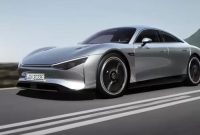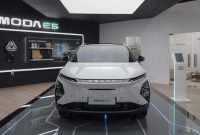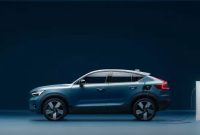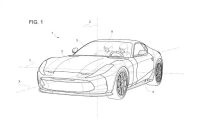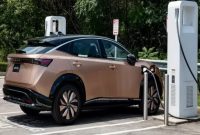Lamborghini enthusiasts, brace yourselves for a groundbreaking shift in the automotive landscape. The iconic Lamborghini Aventador is poised to step […]
Cars Versa ID
Mercedes EQXX Concept Electric Car Shatters Records
The Mercedes EQXX electric concept car has made headlines once again, smashing its own records for range and efficiency during […]
Chery Set to Unveil Cutting-Edge Electric Vehicle at 2024 Beijing Auto Show
Chery, the renowned Chinese automotive manufacturer, is gearing up to make waves at the upcoming 2024 Beijing Auto Show with […]
Revolutionizing the EV Landscape: Volvo’s Breakthrough Battery Innovation
Volvo Cars is on the brink of transforming the electric vehicle (EV) industry with its groundbreaking battery technology, set to […]
A Revolutionary Step: Mercedes-Benz Electrifies the G-Class
Mercedes-Benz introduces the electric G-Class, blending opulence, ruggedness, and eco-conscious technology seamlessly. Mercedes-Benz is set to reveal its highly anticipated […]
Nissan’s Latest GT-R and Z Models Geared Up for Production
Nissan North America’s Senior Vice President & Head of Planning, Ponz Pandikuthira, has officially confirmed the continuity of production for […]
Revolutionary Innovation: Ferrari Unveils Customizable Car Control System
Ferrari, renowned for its groundbreaking designs and engineering marvels, is on the brink of revolutionizing the automotive industry yet again. […]
Exclusive Release: Suzuki Set to Introduce 2,400 Units of 5-Door Jimny in 2024
Suzuki Indomobil Sales (SIS) is gearing up for the highly anticipated launch of the Suzuki Jimny 5-door variant in Indonesia. […]
Nissan’s Strategy with LFP Batteries
Electric cars have long faced a challenge in reaching widespread adoption due to their relatively higher costs compared to traditional […]
How to Get a Car: A Comprehensive Guide to Acquiring Your Dream Vehicle
Welcome to the ultimate guide on ‘How to Get a Car.’ Whether you’re weighing the options between a new or […]

